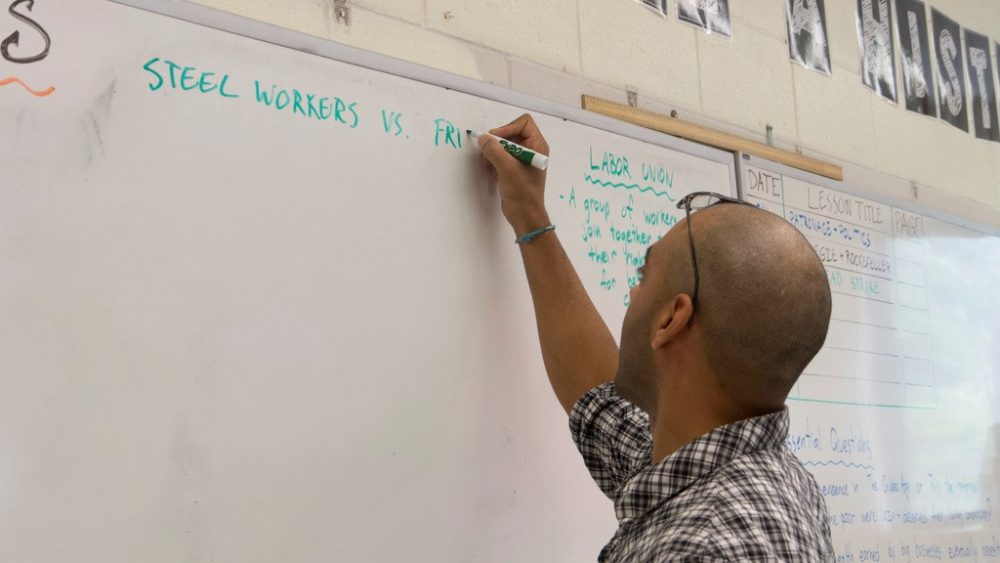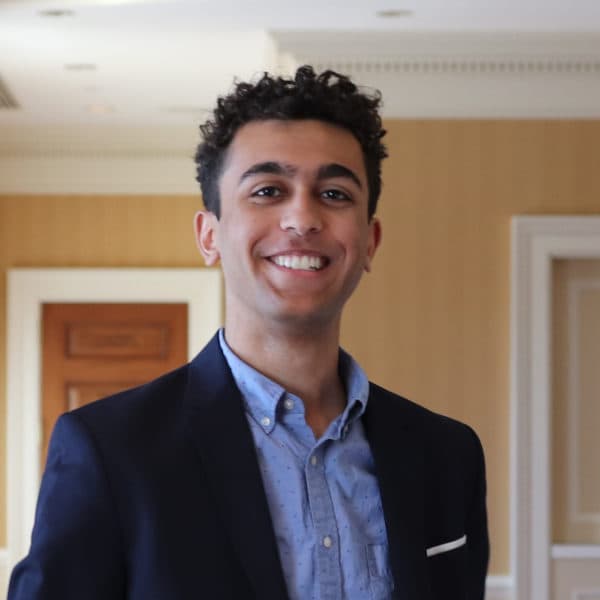Advertisement
Admissions policy at Mass. vocational schools target of new federal civil rights complaint
Vocational and technical high schools across Massachusetts unjustly exclude students from disadvantaged communities by using a selective criteria admissions system, a federal complaint filed Thursday with the U.S. Department of Education alleges.
The Vocational Education Justice Coalition, a group comprised of community and civil rights advocates, argues the schools use criteria such as grades, attendance and interviews that makes the admissions process resemble those used at “selective” private schools.
State enrollment data shows students from traditionally marginalized backgrounds — including students of color, English language learners, those with disabilities and from low-income households — are admitted into vocational schools at disproportionately lower rates to their peers, the complaint states.
“Any student who successfully completes middle school should have an equal shot at admission to a vocational education program,” Andrea Sheppard Lomba, executive director of United Interfaith Action of Southeastern Massachusetts, and a coalition member, said in a statement. “Rank-ordering students based on their grades or attendance, and only admitting the top students, is antithetical to the whole purpose behind vocational education.”
Boston-based Lawyers for Civil Rights and the Center for Law and Education filed the complaint against the state Department of Elementary and Secondary Education on behalf of the coalition and four students in Chelsea and Gardner.
A spokeswoman for DESE said the department is reviewing the complaint and "cannot comment on the allegations at this time."

Public vocational schools are trade-focused and offer technical skills training. They receive federal funding, and offer an alternative to traditional high schools with a direct pathway into the workforce.
But open seats are hard to come by in the state: in the 2020-21 school year, more than 18,500 rising ninth graders in Massachusetts vied for 10,616 vacant spots, according to state data. And underserved students get an unfairly small number of acceptances, lawyers say.
In the 2022-23 school year, roughly 55% of students of color were admitted into vocational schools compared to 69% of white students, according to data from the state education department. Meanwhile, 54% of low-income students were admitted compared to 72% of their peers.
Data also shows 54% of students with disabilities were accepted compared to 65% of students without disabilities, while 44% of English language learners received offers compared to 64% non-English learners.
Of 28 public vocational and agricultural schools in Massachusetts, 27 rank candidates based on criteria such as grades and attendance, plus more subjective categories like recommendations and interviews, according to the complaint.
"Let's stop denying kids from disadvantaged backgrounds a pathway to the middle class," said state Sen. John Cronin (D-Fitchburg) at a news conference at the State House Tuesday. "Vocational schools in Massachusetts need consistent admissions policies that are fair, that are equitable, and that prioritize social mobility."
The complaint asks the U.S. DOE’s Office for Civil Rights to investigate the state’s policy of vocational school admissions and withhold funding until state officials implement a more equitable system — such as a lottery, which has been permissible under state law since 2003.
DESE received nearly $13 million in federal grants for vocational education in the 2020-21 school year.
In recent years community advocates have sought to raise awareness of vocational schools’ alleged exclusionary practices. In 2021, DESE made incremental change, by prohibiting vocational schools from considering minor disciplinary infractions or excused absences in admissions decisions.
But community groups said those changes didn’t go far enough.
Two new legislative bills filed this session seek to change the system over to a lottery. If successful, the laws would circumvent the federal complaint and force vocational schools to apply the new process, according to Cronin, who introduced one of the bills.
Cronin said he first heard about alleged disparities in vocational school admissions while running for office in 2020. He had hoped education commissioner Jeff Riley would take more aggressive action in 2021 with the rule adjustments. The state legislator said the disparity is getting worse at some vocational schools.
“There’s a sense that vocational schools across the state have lost a sense of their mission and become more like private schools than public schools,” Cronin said in an interview. “These are public schools, and right now they are discriminating against four really vulnerable populations of students.”
The complaint includes four students who were rejected from vocational schools or chose not to apply because they didn’t think they’d get in — including a Latinx student interested in carpentry and a student with disabilities who were denied entry to Montachusett Regional Vocational Technical School, or Monty Tech.
Josue Castellon, a 16-year-old student from Chelsea and youth organizer who’s not involved in the complaint, recounted at Tuesday's news conference the shame he felt after being rejected from a local trade school.
“In an instant, I was filled with embarrassment and defeat,” Castellon, a junior at Chelsea High, said. “I rushed to hide the letter away so no one could see that I didn’t get in.”
Demand has grown at vocational schools in Massachusetts in recent years. One report found that in the 2020-21 school year, there were 1.75 applicants per available seat in vocational programs – with demand nearly double the seat capacity in some communities.
Building capacity and teacher availability are the main constraints preventing more student acceptances, according to a 2019 policy brief.
The coalition has requested a meeting with the new education secretary, Pat Tutwiler, to consider changing the state’s policy to a lottery-based one.
“You shouldn't need to show success relative to your peers to have an opportunity to enter a non-traditional academic environment,” Cronin said. “We are denying kids who can benefit the most from a skilled trade.”
